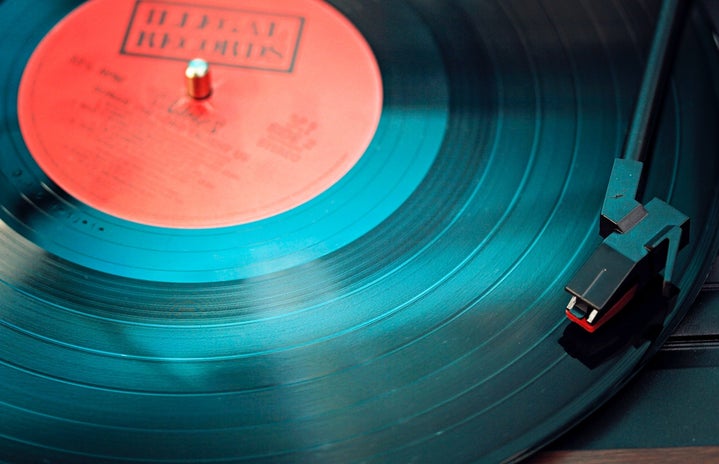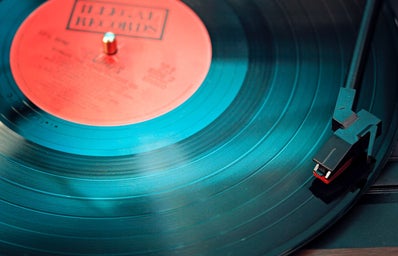This September, Miley Cyrus shattered the Internet with her cover of Blondie’s “Heart of Glass.” Her raw, raspy vocals fit the style of the song perfectly, and the Internet demanded she release a rock album. The craze even caused Cyrus to release the cover on Spotify.
Gen-Z especially embraced the cover. But here’s the kicker: the original “Heart of Glass” came out in 1978, 14 years before Miley Cyrus was even born. So what drove the youths to propel a cover of a song that’s old enough to be our mothers into popularity? Part of that answer is fairly obvious: we youths love Miley Cyrus, and enough time had passed that she could reinterpret “Heart of Glass” (Cyrus’s makeup and styling for the video was no doubt a tribute to Blondie’s legendary frontwoman Debbie Harry).
However, I think the frenzy around Cyrus’s cover reveals a truth that the rest of the world may not be aware of: Gen-Z loves nostalgia. In fact, there are subcultures of Gen-Z that define themselves by the aesthetic of a specific past decade. If you told me five years ago that the mullet hairstyle would make a comeback in 2020, I wouldn’t have believed you. But I think this trend runs deeper than fashion and music; past generations serve as a source of escapism from the turbulent and uncertain decade in which Gen-Z came of age.
A lot of us grew up with our parents feeding us nostalgia from their generations. Most of the music I like is from when my mom and dad were my age, and as a little kid I had a healthy dose of the classic Saturday morning cartoons. Of course what we learned from home is going to influence us and what we think is cool. Rock band Greta Van Fleet is often hailed as the second coming of Led Zeppelin, they even have Zeppelin frontman Robert Plant’s blessing, and their oldest members are 24 years old. I can guarantee that those boys have been listening to classic rock since they were babies, and judging that they’ve won a Grammy, they certainly have an audience.
This phenomenon seeps into the media. When we grow up and become company executives, designers or writers, we often look back to when we were young people for inspiration (along with hoping that we aren’t getting too old and what we liked as kids is still cool). This explains the recent biopic surge. More specifically, a media pattern known as the 30 Year Cycle explains that it takes roughly 30 years for cultural trends to regain relevance, hence why the ‘80s made a comeback last decade (Stranger Things, the It remakes, scrunchies and neon clothing coming back into fashion). So start learning the chords to 4 Non Blondes’ “What’s Up,” because the ‘90s are taking over again soon.
Gen-Z has the entire World Wide Web in its back pocket, so it makes sense that we consume so much intergenerational media. I can google outfit inspiration from any decade and have an entire record store worth of songs saved on Spotify. The Internet doesn’t erase the past; it breathes new life into it.
Finally, the 2010’s were a dumpster fire, particularly the latter part of the decade when we started gaining social consciousness. For one, we never had a collective aesthetic; one of the negative aspects of media is that everything cycles out so much more rapidly. Think about it: we started with the Godforsaken Swag era, segued into the Tumblr fandom phase that consumed my middle school experience, jumped into the “Instagram Baddie” period, and ended with the E-boys and E-girls. This creates cultural disunity and will make our future lives harder when we get invited to decades themed costume parties.
I also don’t think it’s a decade we’ll particularly want to remember. What else has marked the 2010’s? Off the top of my head, I say the Trump administration, gun violence, climate change and police brutality. Gen-Z grew up fairly quickly; we’re forced to clean up the mess made by Baby Boomers and Gen X-ers, even Millennials. We didn’t ask for lockdown drills during French class. It’s incredibly tempting to imagine how much simpler life would have been had we been teenagers during another time. But you can still bet the Zoomers marching now would have fought for desegregation in the ‘60s and advocated for Roe V. Wade in the ‘70s.
The kids are alright. We stream “Revolution” by the Beatles on our phones before heading out to march, and we show off our homemade Daria themed costumes on Instagram. Because while we know there’s nothing we can do about the time and place in which we were born, we also know that vintage never goes out of style.


